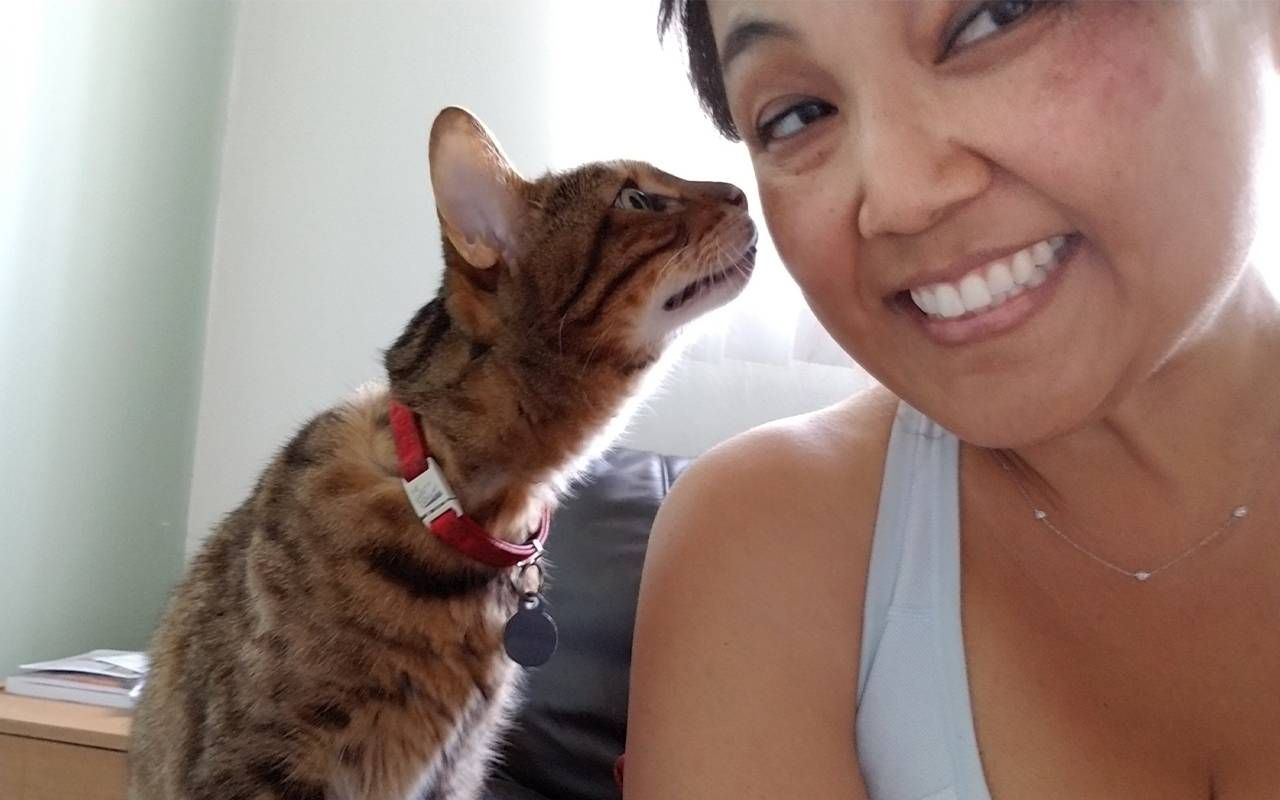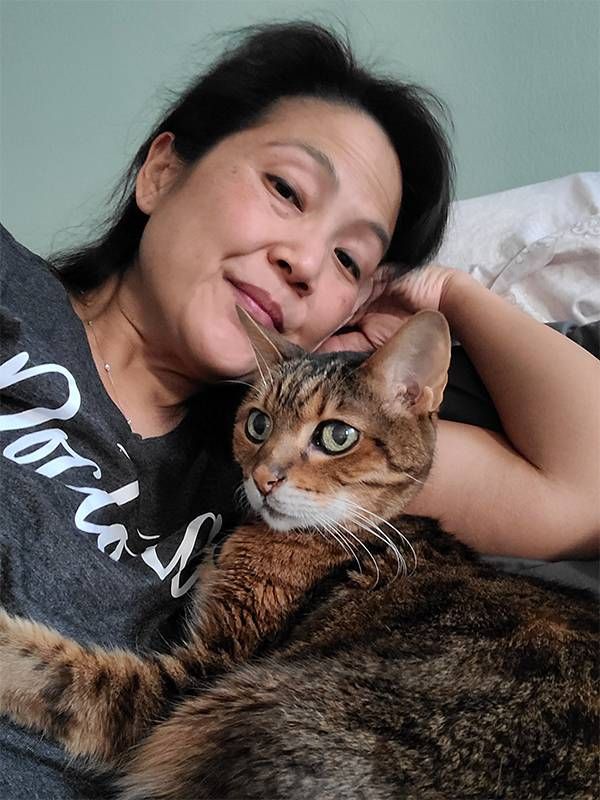Enduring the Agony of Losing a Pet
Why it hits us so hard and why it's important to push through the grief
It's a familiar story.
Nearly 20 years ago, when Sarah Bang of Los Angeles came upon her cat, Bastet, it was a rescue. Bang, 50, says it was a "horrible abuse case," so not surprisingly, Bastet was a handful at first, sometimes requiring oven mitts to handle her. But last year, when Bang had to say goodbye to Bastet after 19 years of bonding, it was unclear who rescued whom.
"She taught me how to be human," Bang recalls.

Nearly six months after Bastet (named for the Egyptian cat goddess) "crossed the rainbow bridge," Bang maintains a closeup of Bastet's emerald-green eyes as the cover photo on her Facebook page. And she still mourns her feisty little Bengal.
"The grief comes in waves," she says. "And comes at unexpected times. I'll hear the wind move the blinds and for a second I think it's her walking along the window." It's not surprising that Bastet's "ghost" looms so large for Bang.
"She was always my comfort. She didn't ask questions. She was just there to lay on me and love me."
"Animals represent all that is good in this world," says Coleen Ellis, 57, executive director of the International Association for Animal Hospice and Palliative Care, and founder of the Two Hearts Pet Loss Center, an educational group based in Southlake, Texas.
"Their characteristic traits represent things that we as human beings can only wish we could do," says Ellis, who is considered a "pet loss guru."
"They're loyal to us, they trust us unabashedly. They don't judge. They can just sit there and be with us."
Bang echoes the thought, almost verbatim. "I do notice when I'm having a tough day, I feel her absence even more," she says, reflecting on the loss of Bastet. "She was always my comfort. She didn't ask questions. She was just there to lay on me and love me."
This kind of unconditional, uncomplicated bond contrasts starkly with the messy relationships that all humans share with one another. It's one reason psychologists say the loss of an animal companion hits us so hard.
Warm Fuzzies

Another reason is the fundamentally tactile nature of furry friendship. Research has shown that just petting an animal — a literal "warm-fuzzy," to use a pop-psychology term from the 1970s — reduces heart rate and produces endorphins, hormones associated with happiness and well-being.
"When you think about how we're designed as human beings, the deepest bond we have is touching," says Margo Forbes, 75, a psychotherapist in Novato, California. "We touch our kids for the first time; put your child on your breast and help them hear your heartbeat. So we're designed to have a touching relationship as the deepest kind of bond. It's the highest form of connection."
The importance of the tactile connection has been heightened at a time of "social distancing," when many are feeling more isolated than ever. Spurred by the loneliness inflicted during the COVID-19 pandemic, pets of one form or another now reside in an astonishing seven in ten U.S. households.
'Grief is in a Big Box'
Another factor driving the intensity of feeling about our pets may be that grief is cumulative. "Grief is in a big box," says Forbes, "and every time you have another loss, it brings up all the previous losses." For this and other reasons, loss of a longtime pet can be especially tough on older owners, according to Kathleen Cooney, 49, a veterinarian who teaches euthanasia, animal hospice and welfare at Colorado State University.
"So many of my families have been 'senior humans' and this will be potentially the last cat that they'll have," says Cooney. "So it makes this last goodbye even more meaningful. It's kind of a culmination of many, many years of pet ownership and all those other losses tend to come to the surface."
Social media has provided highly visible platforms for expressions of pet grief, but full-on funerals for pets are becoming more mainstream, according to Ellis, who says the trend is being driven by human demographics.
"She taught me how to be a human being and she taught me how to be selfless when it came to making decisions for her."
"Baby boomers started empty-nesting about fifteen years ago and they weren't done spoiling children," she says.
Likewise, many of those millennial fledglings who weren't quite ready for kids of their own, opted for fur babies instead. "And so you've got the two largest population bands in our country who started making that change," says Ellis.
Sometimes the grief can be compounded by well-intended expressions of sympathy. "A lot of folks will say, 'Oh, 23 years — you know, she had a good run,'" reflects Bang on the loss of Bastet. "But I think that makes it harder because you had so much more time to see them sort of transition from a young cat to an older cat, and you see them change and you're changing with them."
"I think it's important for people to stop saying, I know they were just a cat, or just a dog, or just a bird," Bang says. "She taught me how to be a human being and she taught me how to be selfless when it came to making decisions for her, because she trusted me to do that."
And then she adds, with obvious anguish, "But there's that terror in knowing that you have to make the [final] decision that's best for her."
The Hardest Moment
Cooney teaches veterinarians the gentle art of home euthanasia, when vets make house calls to perform the final, agonizing service for animals and their owners. It's pricier than in-office euthanasia — sometimes significantly — but a field that she says is "growing in parallel with the human animal bond." Cooney says about half of her clients are older and often more willing to go the extra mile for their companions.
We could take a cue from our animals and the grace with which they exit this world.
"You're thinking about your own loss of your existence," Forbes adds. "It seems kind of counterintuitive that we would have pets, because they're gonna die before we do. There's this agreement: 'Okay, I'm going to form a bond with you and it's going to include grief.'"
Forbes says we could take a cue from our animals and the grace with which they exit this world.
"I think it's a valuable thing actually, that our pets do for us, in preparing us for our inevitable loss of our deep personal relationships with our loved ones and in our own existence."

Read More

